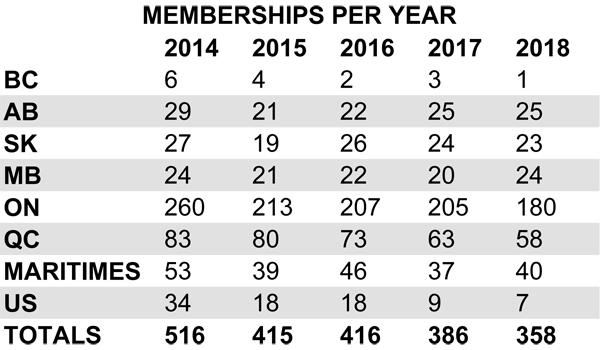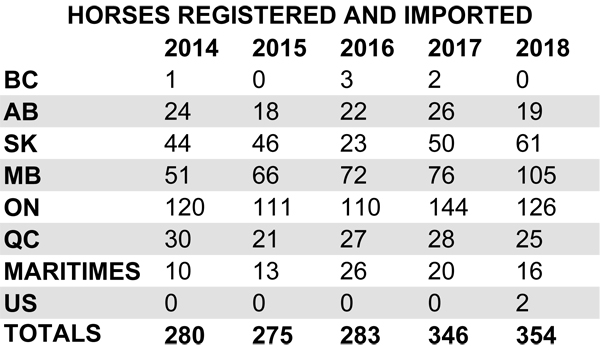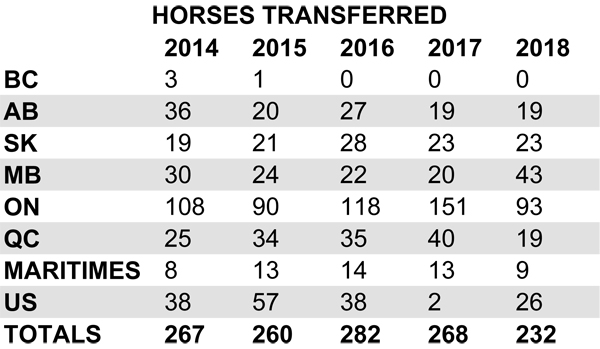



|
x |
||||||
|
CANADIAN BELGIAN HORSE ASSOCIATION BOARD OF DIRECTORS 2022-2024: |
||
|
|
|
|
President Terry Morrow 157 Chemin de Dalesville Brownsburg-Chatham, Qc. J8G 1H5 450 533-6066
|
Vice President Don McWilliams 165 River Rd. E. Kitchener, On. N2B 2G9 416-801-1994
|
Secretary Treasurer Barb Meyers 17150 Conc 10 Schomberg, On. L0G 1T0 905-939-1186
|
|
Grant Gee Box 2530
Virden, Mb. R0M 2C0 204-851-0495 morskyroseleabelgians@gmail.com
|
Darwin Krebs Box 4, Site 11, RR1 Didsbury, Ab. T0M 0W0 403-556-4927
|
Dean Bernier Box 13 Prince Albert, SK. S6V 5R4 306-960-9056
|
|
Denis Lussier 442 Rt 243 Nord.
Cleveland, Qc. J0B 2H0 819-446-0406 |
Peter Maher
2630 9/10 S.R. RR1
New Lowell, On.
L0M 1N0 705-434-7118
|
Leigha Beckwith 42 Katie Ave. Douglas, NB.
E3G 9K9 506-4407561 |
|
The Constitution of the Canadian Belgian Horse Association (updated May 11, 2019) |
The Belgian Draft HorseTheir kind and gentle disposition has earned them the title of the "Gentle Giants".
Belgian Draft horses are the heaviest of all breeds of draft horses, weighing anywhere from 800 to 1200 kg (1800-2600lbs) and ranging in height from 16-18 hands (160-180cm). Most commonly seen with red sorrel body colour and a white star or stripe on the face, white socks and white or light coloured mane and tail. Other body colours include roan, chestnut and blonde.
There are two Belgians that hold Guinness World Records. Big Jake, who holds the record as the tallest living horse at 20 hh, 2 3/4 inches tall, and McIlrath’s Captain Jim, a 2-year-old Belgian stallion who has the World Record for being the most expensive draft horse ever purchased. He was sold at the Mid-America Draft Horse Sale in February 2003 for $112,500.00
The Belgian Horse was first imported to the US in 1866, the popularity of the breed spread through the States, as American horsemen found the breed to be "the easiest keeper, best shipper, quickest acclimated and quietest of disposition of the various draft breeds" (The Belgian Review).
According to studbook records, in 1902 the first Belgian was bought to Canada, specifically to Quebec. The Canadian Belgian Draft Breeder's Association was incorporated in 1907. The name changed to the Canadian Belgian Horse Association in 1934.
Over many years, selective breeding has yielded significant changes you see in today's Belgian horse. The modern North American Belgian is taller and more refined. It has longer legs and longer, more graceful neck. The bone is flatter and the modern Belgian stands on a larger foot with a wider heel.
It is commonly known in North America the Belgian horses were originally bred for farm use. Their strength, stamina and gentleness made them farm favourites for heavy work.
Showing horses promotes the owner's stable and helps to encourage recognition of a strong Belgian pedigree. Showing livestock is cornerstone to the culture of farming and horse shows and is a popular attraction at agricultural fairs. Specifically, spectators are drawn to the size of Belgians in the ring and there are few sights more impressive than a six or eight Belgian Horse hitch.
Another popular spectator competition is the horse pull. Although many draft breeds may enter a pull, it is usually Belgians that take home the red ribbon. A team of horses is hitched to stone boat that has varying weight. Belgians seem to instinctively want to pull weight.
The resurgence of popularity in all draft horses has once again allowed for Belgian horses to be recognized as the ideal draft breed. Selective breeding will continue to improve the breed.
The "Gentle Giant" has earned a permanent place in rural communities and will continue to bring prosperity and pride to those who choose to breed and raise Belgians.
Belgian registrations are
documented and maintained by the Canadian Belgian Horse Association in Schomberg, Ontario under the rules and regulations of the Canadian Belgian
Horse Association and the Livestock Pedigree Act. 1. (a) An animal conceived and born in Canada from progeny of animals registered in the Canadian Belgian Stud Book
(b) An animal conceived by artificial breeding born in Canada may be registered under the regulations approved by this association.
(c) An animal born in Canada the result of embryo transplant may be registered under the regulations approved by this association.
(d) As of January 1, 2019 The Association will only accept for registry Belgian Horses that are recorded in the Belgian Draft Horse Corporation of America registry.
(e) The applicant must comply with all rules and guidelines for registry and transfer along with the fee set by this association. 2. DNA Requirements:
(a) All females born after Jan 1, 2019 must be DNA documented prior to registration.
(b) As of June 1, 1986 all sires must have their DNA documented, prior to the registration of their offspring. A Belgian offspring will not be registered unless the sire's DNA is on file at the CBHA office.
(c) Canadian owned horses must be tested through the CBHA office with all fees paid in advance. The results of Horses DNA tested and documented at the Belgian Draft Horse Corporation of America are accepted in the Canadian registry.
(d) Belgian Horses to which a registration number is issued, at the discretion of the CBHA, will be subject to verification of parentage and DNA profiling 3. JEB is an abbreviation for (Junctional Epidermolysis Bullosa) All sires entering into service after December 1, 2002 must be JEB tested and results printed on the certificate of registry or be “parentage verified JEB non-carrier”. “Parentage Verified JEB Non-Carrier” will be documented on the certificate of registration provided the foal is DNA tested and one of the following conditions is met:
(1) Both parents are JEB tested Non-Carriers.
(2) One parent is a JEB tested Non-Carrier and one parent is a Parentage Verified JEB Non-Carrier.
(3) Both parents are Parentage Verified JEB Non-Carriers.
(4) Canadian owned horses must be tested through the CBHA office with all fees paid in advance. The results of Horses JEB (Junctional Epidermolysis Bullosa) tested and documented at the Belgian Draft Horse Corporation of America are accepted in the Canadian registry.
(5) The fees for DNA and JEB (Junctional Epidermolysis Bullosa) kits shall be determined by the Board of Directors and incorporated into the fee schedule that is periodically updated and provided to any member or non-member that so requests.
|
|
CBHA STATISTICS FOR THE YEARS 2014 TO 2018 AS RECORDED IN THE SPRING/SUMMER ISSUES OF THE CANADIAN BELGIAN BANNER |


